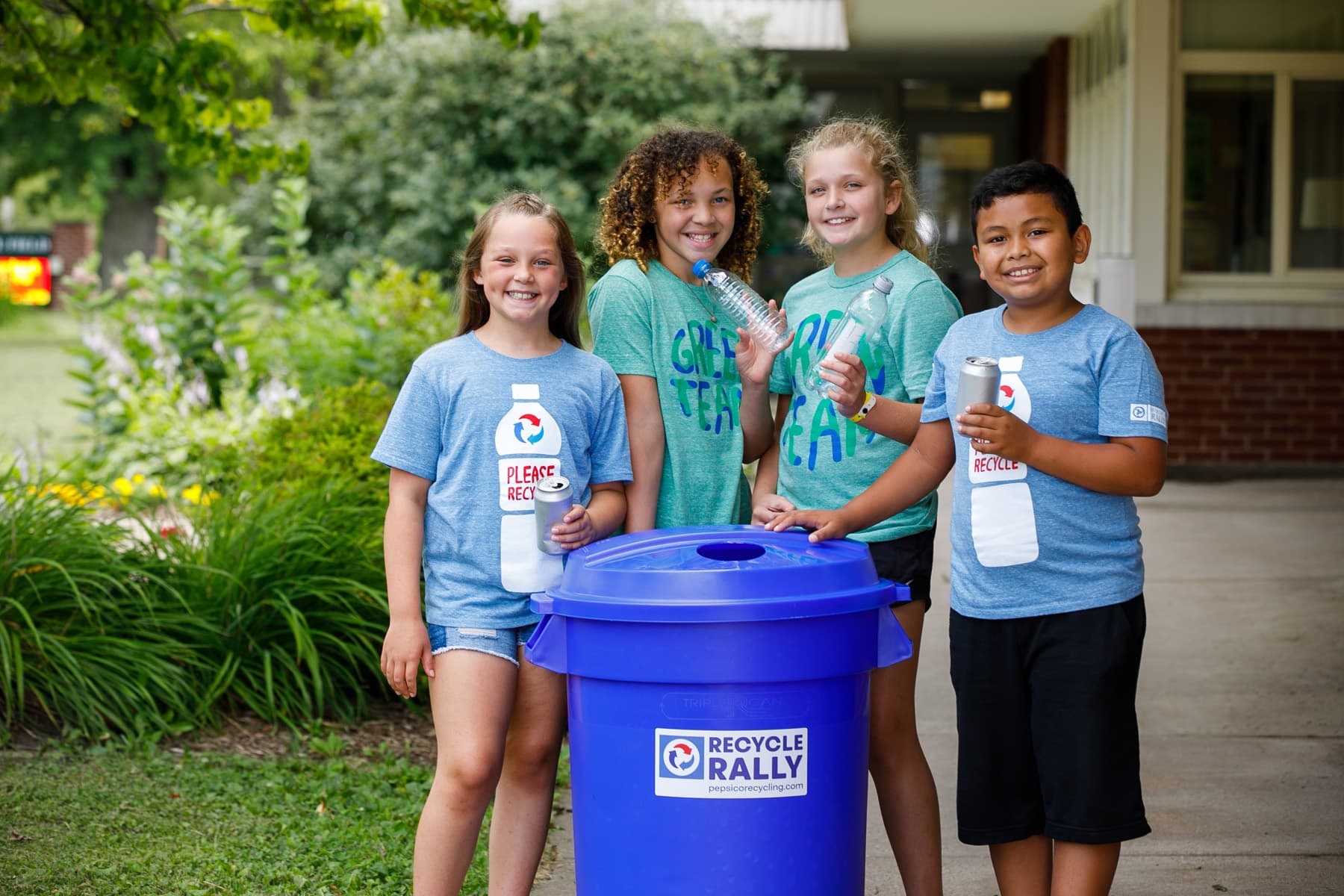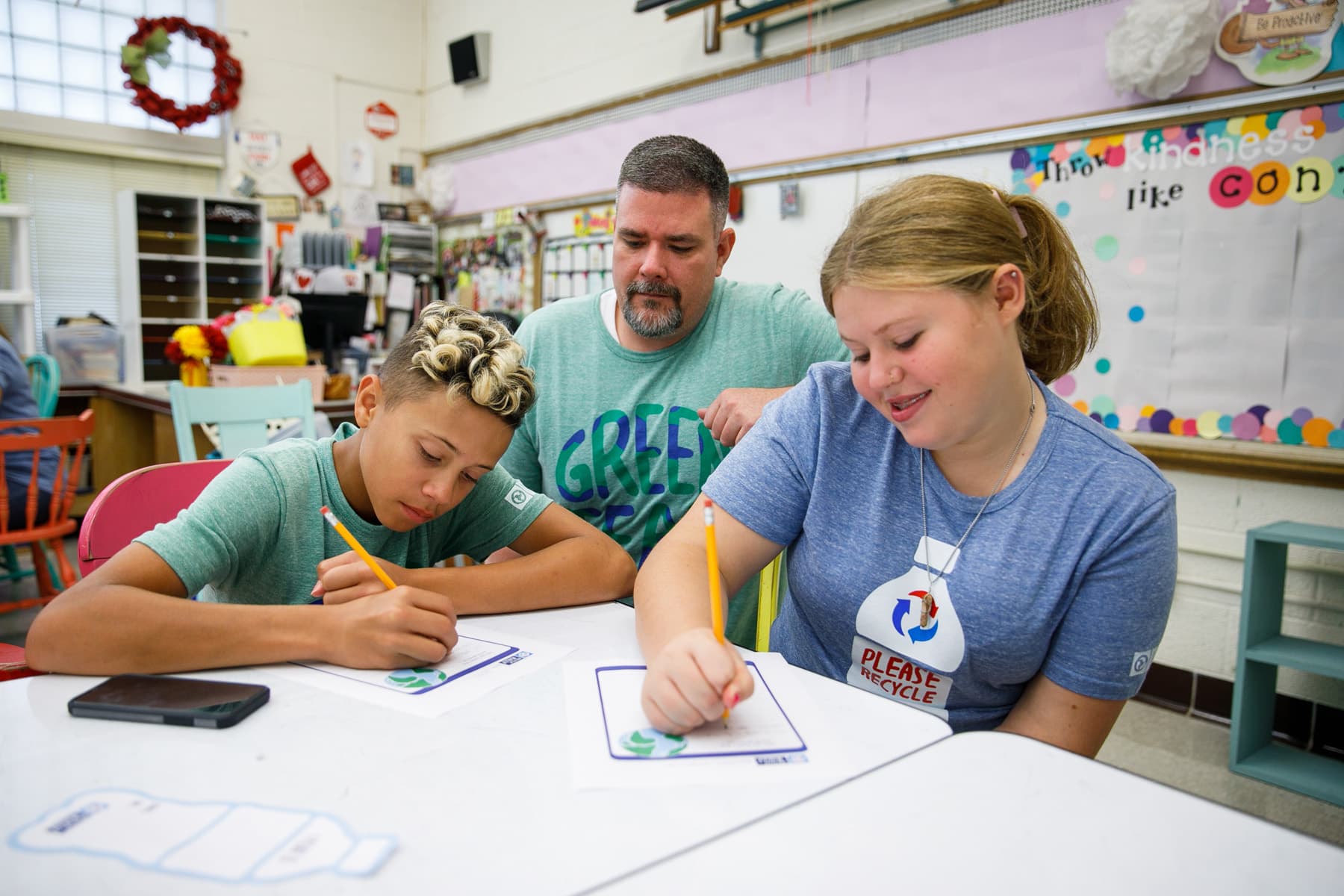Learn How Organic and Inorganic Materials Decompose
The science behind why recycling matters

Students are often encouraged to reduce waste in our schools, but do they truly understand why? Explaining environmental processes can be tricky, but using a variety of activities and hands-on experiments can bring key concepts to life. Fortunately, there are many fun and practical ways to help kids better understand how materials decompose and why it’s important.
The science of material decomposition
As Science News for Students explains, “The decay of dead things is simply nature’s way of mining old materials for new uses.” They’ve created a valuable resource that’s perfect for the classroom, including a list of power words and printable activities, to explore how decomposers “recycle the dead.”

Decomposers play a vital role in our world — they break down decaying or dead organisms. Using videos can bring these concepts to life and introduce both elementary and older students to the different types of decomposers including worms, bacteria, fungi, and insects.
Here are some great activities to help bring your lessons on decomposition to life:
- Identifying Decomposers. This introduction to different types of decomposers includes a vocabulary list and four activities. Students will learn to identify decomposers and differentiate compostable waste and non-biodegradable waste. In the process, they will gain an understanding of sustainability and waste cycling. Kids can also create their own worm compost farm!
- Creative Ways to Teach About States of Matter. These activities are designed to help students understand the various states of matter. This allows them to better grasp the physical changes that take place during decomposition.
- Decomposition Hike. What happens to the autumn leaves after they fall to the ground? Go on a nature hike with your student detectives and teach them about the natural processes related to the things they see! Where are the leaves piling up? Do they see any mushrooms? What’s under rotting logs, and what do they see in the soil?
- Decomposition Rates of Biodegradable Materials. This downloadable project allows students to directly monitor the decomposition rates of different biodegradable materials. They will record their observations and methods on a provided tracking sheet and compare the results.
Worm bins and composting
Ready to teach kids about how decomposition helps reduce food waste? Highfields Center for Composting offers an animated teaching guide for younger kids (which can be coupled with the video Worms Are Wonderful) that showcases how to separate food scraps effectively and close the loop. Follow it up with lessons such as Nature’s Recyclers, Don’t Waste Lunch, and Let’s Compost!

Based on 5th grade science, The Dirt on Decomposers: Crash Course introduces upper elementary kids to food chains and how energy moves through an ecosystem. Meanwhile, these fascinating worm bin and fruit and vegetable time-lapses provide students of all ages with an up-close look at decomposition in action!
These hands-on activities are perfect for the classroom:
- Food Webs Activity for Kids. This activity shows kids how to use microbial decomposition to turn food waste into fertilizer. The material list and instructions are easy, and students may appreciate the engaging how-to video.
- Rotting Rubbish. Everyday household items are all you’ll need for this experiment. This simple activity gives students an intimate look at how recycling materials decompose.
- Worm Compost Bin. Creating a large worm compost bin is easy with this step-by-step activity for kids. First, you’ll need two 8-10 gallon totes. Then, grab a few rocks, newspaper, cardboard, and about one pound of worms to get started! This activity requires a power drill, of course, with adult supervision.
- Create a Microcomposter in a Bottle. Use this tutorial to make a small composter with just a two-liter bottle. Students can gather old leaves, vegetable scraps, and other common items to watch decomposition in action!
- Decomposition Observation Bags. Each student can create and monitor their own compost bag to understand how recycling materials decompose. They can add soil, plant debris, old fruits, vegetables, and bread to gallon bags and watch the magic happen!
Garbage, plastics, and more
Nature knows how to take care of itself, but what about inorganic decomposition? Truly, this should be at the core of any lesson on recycling and sustainability. Students in upper elementary, middle, and high school might be shocked by how long it really takes for garbage to break down, including the actual life cycle of a recycled can or plastic bottle. In addition to reducing waste, is there a better way to deal with these inorganic materials?

Remarkably, nature might even save us here, as well, as incredible discoveries continue to be made all the time. For example, scientists have actually found plastic-eating worms and bacteria. Can this save the world from its plastic addiction? Exploring this topic is a great way to spark a classroom discussion on what that could mean for our environment in the future.
Commit to recycling
We want students to take what they learn about how recycling materials decompose and apply it to life beyond the classroom. By providing them with information and hands-on experiences, we empower them to make environmentally responsible choices throughout their lives.
Start a Green Team, assign roles, and tackle the cafeteria to keep thousands of pounds of waste out of landfills each year! This is a serious issue, but finding ways to make it fun by rewarding their efforts and even playing recycling games can get kids invested and engaged. Together, we can work to build a sustainable future!
Learn More

Recycle Rally
Recycle Rally is a free K-12 program that provides rewards and tools to help enhance recycling at your school!
Explore now
Additional Resources
Our comprehensive library of resources was designed to inspire the next generation of green leaders.
Explore now
